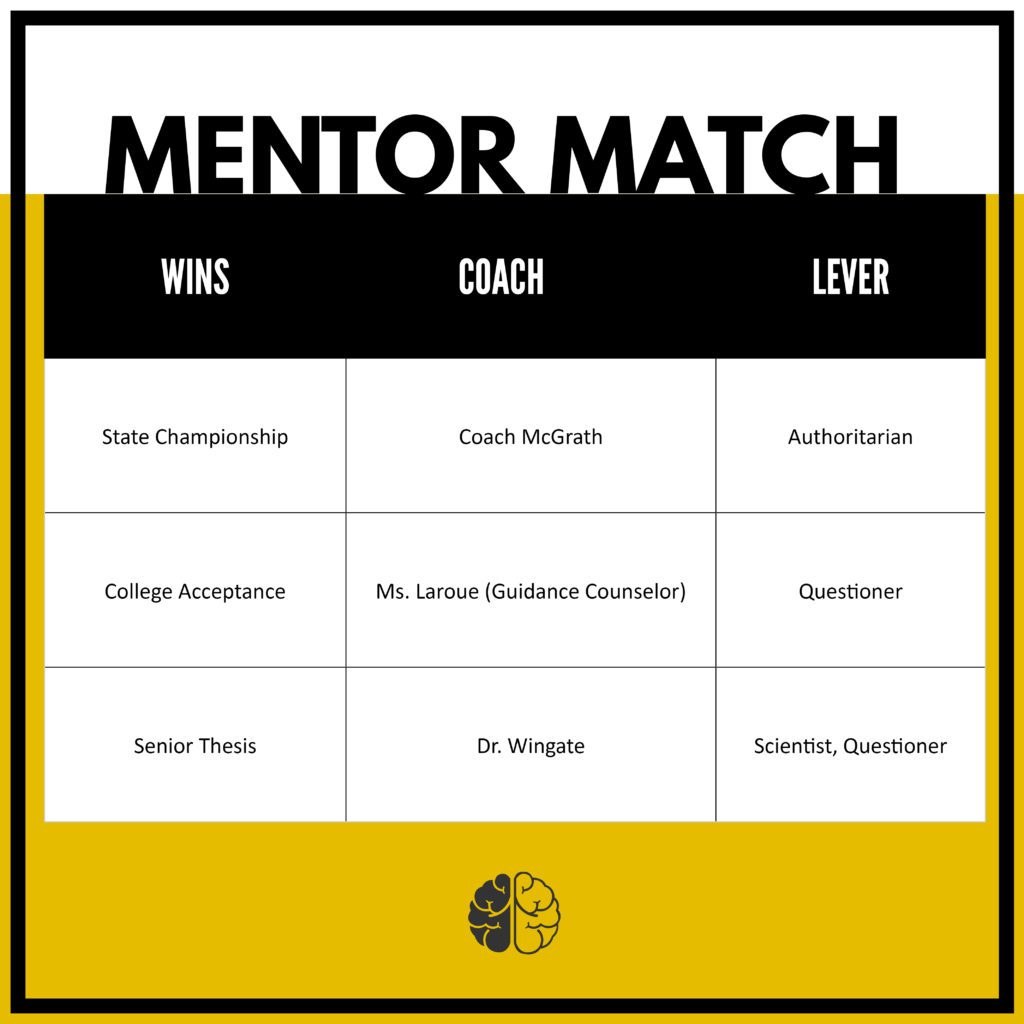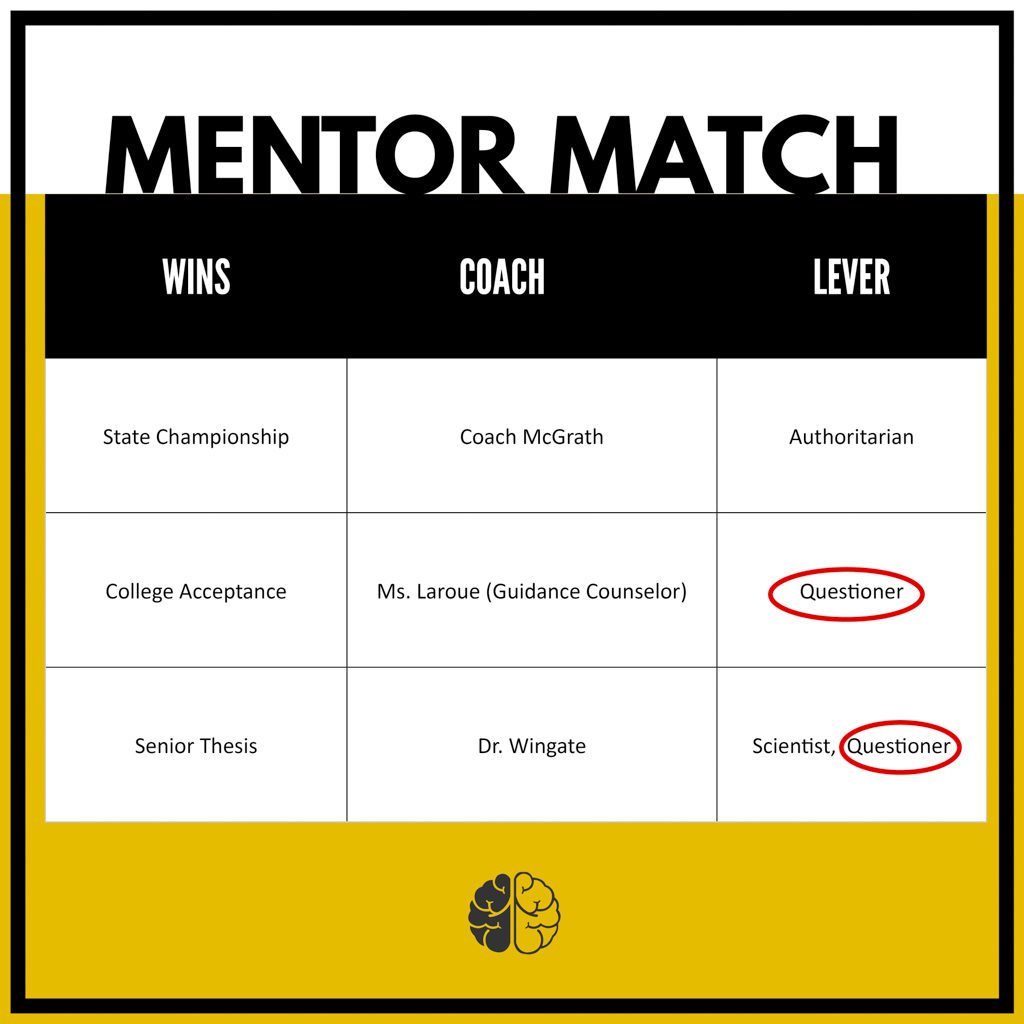Who’s the best mentor?
It depends—classic mentor answer!
Choosing a mentor is tough. You want the right mix of empathy (they’ve been there) and accountability to keep you moving forward as an entrepreneur.
A mentor’s first job is to diagnose your largest problem and then show you the best solution right now. But that’s the easy part. We use tools like the Two-Brain Dashboard and the Two-Brain Growth ToolKit to make the diagnosis and prescription clear.
The hard part is implementation.
Our teachers have taught us that knowing the answer is the solution to any problem. But that’s not true. Knowing that you should raise your rates won’t make you profitable. You need to take action.
Most people fail to take the hard steps (and risk!) to change. Most of us are paralyzed by fear, myths (“legacy rates”), inertia … . We need someone to break big problems into small steps and stay with us while we execute on one thing at a time.
You’ve seen the “personality tests” like Myers-Briggs, Kolbe and StrengthsFinder, I’m sure. Those are interesting but don’t give us specific answers. Below, you’ll find an exercise to help you figure out the kind of mentorship you need right now.
Six Steps to Finding a Mentor
Start with a blank page. Draw two vertical lines down the page to make three columns.
At the top of the first column, write “Wins.”
Second column: write “Coach.”
Third column: write “Lever.”

Step 1
I want you to think back to a time in your life when you were proud of yourself.
What was the thing you had just accomplished? Was it sports related? Did you win the big game? Strike out a key batter?
Or was it something you accomplished in school—finished a big project? Earned admission to college? Completed a piece of art?
Was it fitness based? Did you PR on something or win a competition?
Did it happen in the military? At home? At work?
Did you achieve sobriety? Were you accepted into your church?
List these things in the first column, under Wins.
If you thought of more than one instance when you were proud of something you accomplished, great! If you can only think of one time, that’s pretty normal.
Step 2
Still thinking about the accomplishment that made you proud:
- Who was your coach?
- Who was your model—who were you trying to emulate?
- Who was the first person you told about your victory?
- Who was the person you were trying to impress?
There could be more than one person.
I know that in every instance, you had a coach, a teacher, a mentor or a model to follow. List their names under the second heading, Coach.
Step 3
Look at your list of names in the second column. These are the people who have mentored or coached you to successful action in the past.
Beside each name, write down the person’s coaching or leadership style in the Lever column. You don’t have to be formal; just write down the first word that comes to mind. Was the person an authoritarian? A listener? Was he or she more Socratic (he or she asked questions until you came to the answer yourself?) or more of a drill sergeant?
Write down only one to two words beside each name.

Step 4
Now go down your list of names and levers and look for the commonalities. Which names and levers appear more than once?
You’ve probably been guided by different types of people. I sure hope that’s true! But you might notice some commonalities among many of your best guides.
Highlight those common “levers.”
These are the attributes you want in a mentor. These are the things that will make you take action.
Your next task is to find an expert with those attributes.

Step 5
Find an expert.
Ask yourself, “What exactly do I want to achieve next year?”
Then dig deeper: Ask yourself “why?” at least three times.
For example: “I want to grow to 300 gym members next year.”
Why?
“So that my gym makes more money.”
Why?
“So that I can make a greater income and work less.”
Why?
“Because my husband and kids deserve to live without a budget and see me more often.”
Next ask, “Who has already achieved (that specific thing)?”
You want to identify some people who have achieved your specific goal—not necessarily the people who have done it the way you think it should be done.
This is a key point: In the fitness industry, we often chase after the tactical “experts” instead of the people who are actually successful. We think “300 members is the way to make more money!” so we pay the marketing expert to help us get 300 members instead of the person who will make us successful at our real goal. This results in people who aren’t actually successful themselves making money as “experts.”
Great example: unsuccessful gym owners selling “marketing secrets.” Maybe they’re good at marketing—but their gyms still failed.
List two or three people in your industry who have achieved your real goal.
Step 6
Call the top expert.
The only way to find out if the expert can get you results is to call.
Ask how he or she would approach your problems.
Ask how the prospective mentor has personally overcome your specific challenges (that’s a dealbreaker a lot of the time!).
Does the person possess the “levers” (the attributes) that have gotten results for you in the past or is the prospective mentor just selling a tactic?
Your best mentor might not be me. It might not even be one of the many professional, certified mentors on the Two-Brain team. But there’s only one way to find out: Book a call.
It’s free, and we might choose each other.
Other Media in This Series
“Maximizing ROI on Mentorship”
“Maximizing Your ROI: The Expense Audit”
“Maximizing Your Return on Time”

